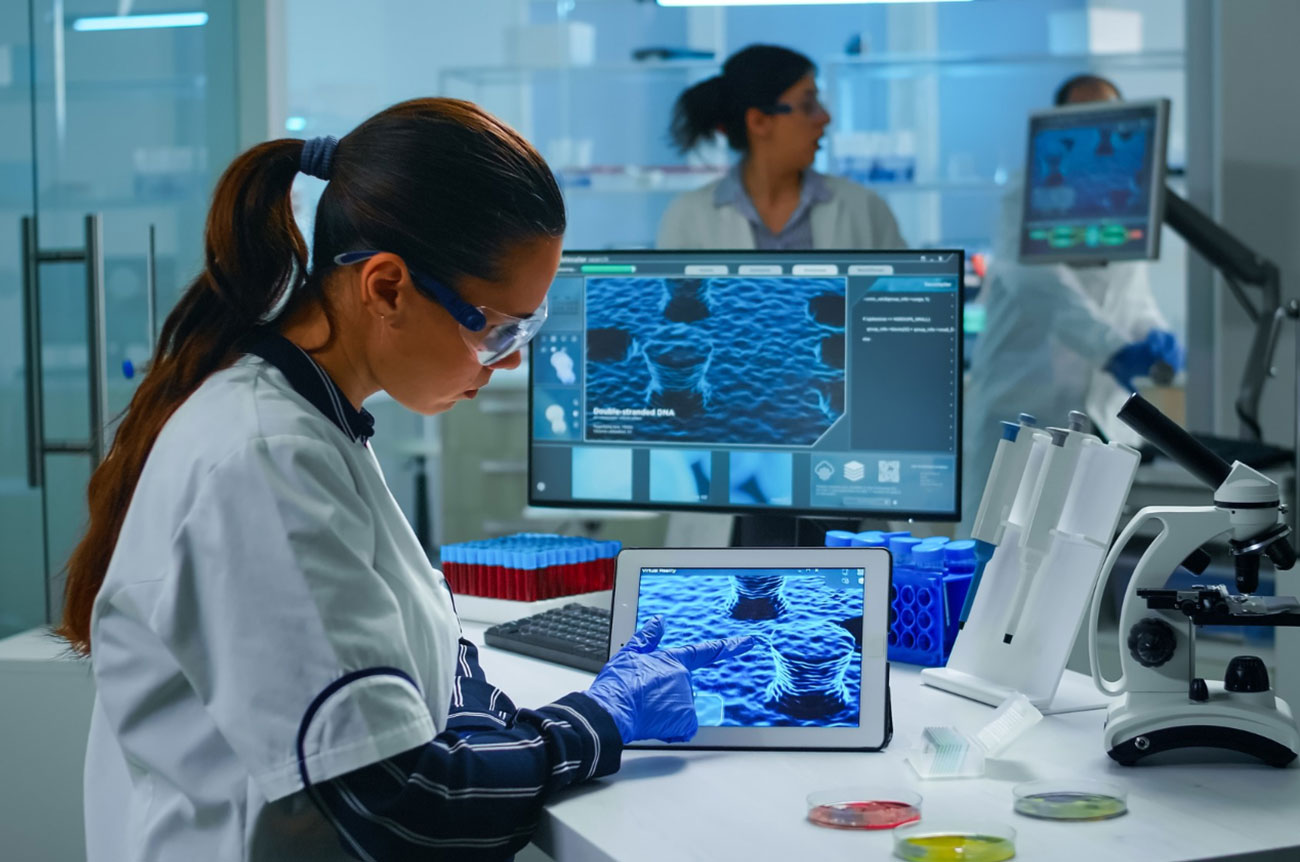
Posted On October 3, 2024
How Brisbane Hospitals are Embracing AI for Better Healthcare Outcomes
Brisbane hospitals are rapidly adopting artificial intelligence (AI) to revolutionise healthcare delivery and improve patient outcomes. This technological transformation is reshaping everything from diagnostics to treatment planning, offering new opportunities for better and faster care. In this blog, we explore how AI is playing a crucial role in Brisbane’s healthcare system.
The Role of Artificial Intelligence in Modern Healthcare
Artificial Intelligence is redefining healthcare in many ways. Its ability to process vast amounts of data and identify patterns that might be missed by humans is making it a valuable tool in diagnostics, treatment recommendations, and even predicting patient outcomes. AI assists healthcare professionals in making more informed decisions, leading to faster and more accurate diagnoses. In Brisbane, hospitals are increasingly leveraging AI to ensure patients receive timely and effective care.
Why Brisbane Hospitals Are Leading the Way in AI Adoption
Brisbane’s healthcare sector is at the forefront of AI adoption for several reasons. Hospitals in the region have embraced cutting-edge technology to stay ahead in providing top-quality care. Government support for digital health initiatives and investments in healthcare infrastructure have enabled these hospitals to incorporate AI into their daily operations. Moreover, collaborations with AI research institutions and tech companies have helped Brisbane hospitals gain access to the latest AI tools, allowing them to remain leaders in this field.
AI in Diagnosing Complex Medical Conditions
One of the key benefits of AI in healthcare is its potential to enhance diagnostic accuracy. Brisbane hospitals are using AI-powered tools to detect complex medical conditions, such as cancer, heart disease, and neurological disorders, at earlier stages. AI algorithms analyse medical images, patient data, and genetic information to identify subtle patterns that could indicate the presence of disease. This early detection allows doctors to create more effective treatment plans, improving patient outcomes.
Improving Patient Care with AI-Driven Solutions
AI is also helping hospitals improve overall patient care. In Brisbane, AI-driven solutions are used to monitor patients in real-time, predicting potential complications before they arise. For example, AI can analyse vital signs and other health data to alert medical staff of any sudden changes in a patient’s condition. This proactive approach allows for quicker interventions, reducing the risk of severe health issues and improving the overall quality of care.
How AI Enhances Decision-Making for Medical Professionals
Medical professionals in Brisbane are benefiting from AI-enhanced decision-making tools. AI systems provide doctors with evidence-based insights, helping them to make more informed choices regarding patient treatments. AI can rapidly sift through medical literature, patient histories, and treatment outcomes to suggest the best possible courses of action. This not only saves time but also ensures that patients receive treatments tailored to their specific needs, improving their chances of recovery.

AI in Streamlining Hospital Operations and Reducing Costs
Brisbane hospitals are adopting AI to streamline their daily operations, ensuring smoother workflows and cost reductions. From managing patient data to automating administrative tasks, AI-powered systems are helping healthcare facilities save time and reduce human error. This means hospital staff can focus more on providing quality care to patients rather than being bogged down by paperwork. By predicting equipment maintenance needs and optimising resource allocation, hospitals also benefit from significant cost savings, leading to more efficient healthcare delivery.
The Role of AI in Predictive Healthcare and Early Intervention
AI is making a profound impact in the realm of predictive healthcare. Brisbane hospitals use AI tools to analyse patient data, helping doctors predict potential health issues before they become critical. For instance, AI can assess patterns in a patient’s medical history and detect early signs of diseases like diabetes or heart conditions, allowing for timely interventions. Early diagnosis not only improves patient outcomes but also reduces the need for more intensive, expensive treatments down the line.
How AI is Revolutionising Brisbane’s Radiology Departments
AI technology has brought significant advancements to radiology, transforming the way Brisbane hospitals conduct scans and interpret images. AI algorithms can analyse X-rays, MRIs, and CT scans faster and with greater accuracy than ever before. This ensures that radiologists can detect abnormalities or diseases such as cancer at earlier stages, improving the chances of successful treatment. By reducing the workload on radiologists and minimising the risk of human error, AI enhances both the speed and precision of diagnoses in Brisbane’s medical facilities.
Ensuring Patient Privacy and Security in AI Applications
As AI becomes more integrated into Brisbane hospitals, ensuring patient privacy and data security remains a top priority. Hospitals are adopting strict measures to protect sensitive health information while leveraging AI technologies. Advanced encryption and secure data handling protocols are in place to ensure patient data is only accessible to authorised personnel. AI tools are also being used to detect and prevent potential cybersecurity threats, keeping patient records safe from breaches while maintaining trust in the healthcare system.
AI-Powered Robotics: Transforming Surgeries in Brisbane Hospitals
AI-powered robotic systems are revolutionising surgical procedures in Brisbane hospitals, making surgeries more precise and less invasive. These robotic tools, guided by AI, assist surgeons in performing complex operations with improved accuracy. For patients, this means shorter recovery times, reduced risk of complications, and less post-operative pain. The integration of AI in surgery allows Brisbane hospitals to provide cutting-edge care, enhancing the overall patient experience and outcomes.
Challenges Faced in Integrating AI into Healthcare Systems
While AI offers immense potential in improving healthcare, Brisbane hospitals face several challenges in its integration. One of the main hurdles is ensuring that healthcare professionals are properly trained to use AI tools effectively. This requires time and resources to upskill the staff. Additionally, the integration of AI with existing hospital systems can be complex, often involving significant adjustments to ensure compatibility and smooth operation. Hospitals must also tackle concerns around data privacy and security, as AI systems handle sensitive patient information. Lastly, ensuring AI systems are reliable and free from bias remains a critical focus to maintain high standards of patient care.
The Future of AI in Healthcare: What’s Next for Brisbane Hospitals?
The future of AI in Brisbane hospitals looks promising, with continuous advancements expected to enhance healthcare outcomes further. Hospitals are already exploring AI’s potential in personalised medicine, where treatments can be tailored to individual patient needs. Additionally, AI is expected to play a larger role in preventive healthcare, predicting patient conditions before they become critical. As AI technologies evolve, the collaboration between human expertise and machine intelligence will likely become more seamless, improving both patient care and hospital efficiency. With ongoing innovation, Brisbane hospitals are set to become leaders in AI-driven healthcare transformation, paving the way for better outcomes.
Suggested reading: Why AI-Powered Software is Essential for Modern Healthcare in Major Cities Across USA, UK, and Australia
Conclusion
Brisbane hospitals are embracing AI to enhance healthcare outcomes, but the journey is not without its challenges. From the high costs of implementation to ensuring patient data security, hospitals must navigate several obstacles. However, the future of AI in Brisbane’s healthcare system looks bright, promising advancements in personalised medicine, improved diagnostics, and more efficient operations that will ultimately lead to better patient care.
